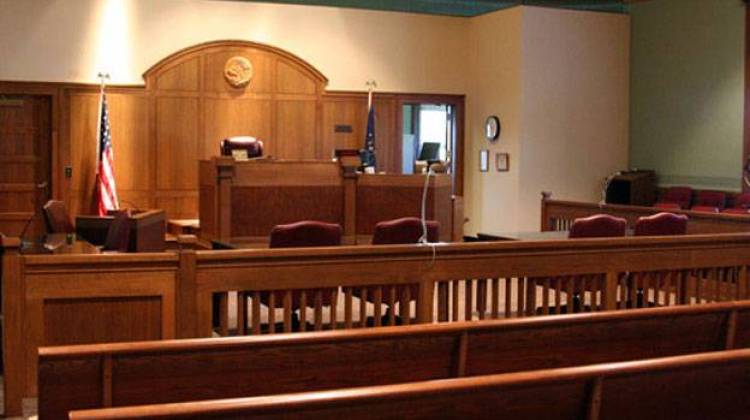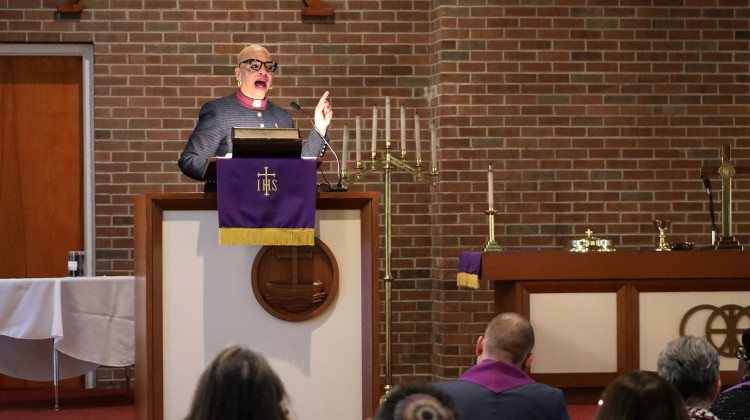Thousands of Hoosier renters may be at risk of eviction or homelessness after a federal moratorium expired in August. Indianapolis Star reporter Ko Lyn Cheang has been following eviction proceedings as more Indianapolis residents have their day in small claims court. Cheang spoke with WFYI’s Jill Sheridan about the magnitude of the problem.
Cheang: Just to illustrate how serious the eviction crisis is, when I sat in on one day of eviction hearings on September 9, there were 281 eviction cases on the docket just for that day alone. And most of the people there were in court for evictions that will fall during the moratorium. And so once a moratorium was lifted, they couldn't delay the eviction further, and many of the tenants who were in court that day faced eviction for pandemic related reasons.
One lost her job at Target because her son contracted COVID. And another one showed up in court with a four month old son because she couldn't afford daycare for him while she was in court that day. Across the state 65,000 households with approximately 69,000 children are behind on rent or at risk of eviction.
The magnitude of this problem dates far before the pandemic Indianapolis for a long time has been one of the cities nationwide that affects its residents at the highest rate. And during the pandemic, Indiana as a state has, been one of the leading states in the country for evictions, with 62,000 people being asked to leave their homes during this time.
Sheridan: Can you talk about some of the limitations of Indiana law that now we're seeing play out?
Cheang: Absolutely. In Indiana, for instance, tenants facing eviction are not entitled to a lawyer. So the vast majority of tenants that we saw in eviction court represented themselves while the vast majority of landlords had legal representation. Tons of other cities like New York or in New Jersey, have enacted laws that guaranteed legal representation for low income tenants who are facing eviction. And legal advocates have said that Indiana should do the same, because it's only with a lawyer that sometimes tenants can secure the concessions they need to be able to be vacate from their home in the most dignified way possible.
Another issue that I've observed is the lack of legal defenses for for non payment of rent that is recognized by judges. I spoke to a judge at Wayne Township small claims court, he understands the issue as being quite clear cut. As long as tenants admit that they failed to pay rent, the vast majority will not be able to find a defense for that. And legal experts have argued that you know, Indiana ought to recognize more legal defenses for not paying rent.
Sheridan: And we know at the root, again of this problem is housing affordability, the lack of affordable housing, how does that play into this issue and just sort of perpetuating the cycle?
Cheang: Housing experts have said that this pandemic and this current eviction crisis just reveals the depth of the affordability crisis that we've already had for a long time in this state. Most of the evictions that we're seeing now are for non payment of rent, and people just can't afford to stay in their homes. They also can't afford to move anywhere cheaper, or they can't find anywhere that is cheaper.
And this is a well documented fact, you know, according to the National Low Income Housing Coalition, Hoosiers are short of 126,000 affordable rental homes.
Sheridan: We know that Indiana and in Marion County, hundreds of millions of dollars have been set aside for rental assistance for people. What are some of the challenges, though, that we're seeing now, as we're trying to get these dollars out?
Cheang: Yeah, absolutely. So I think the number one challenge that some renters have identified is that they're just not getting the money fast enough. Many tenants who are in court facing eviction, have done their due diligence to apply for or even be approved to receive, you know, Marion County rental assistance, but they don't always receive the rental assistance and time before the hearing.
And the problem also is that lots of landlords refuse to accept payment. So from April to September of this year, more than 2,000 landlords in Marion County refused to participate in the rental assistance program or did not respond to requests to participate in it.
Sheridan: Thank you so much for continuing to watch this important issue and taking a few minutes.
Cheang: Thank you so much for your time as well Jill.
 DONATE
DONATE









 Support WFYI. We can't do it without you.
Support WFYI. We can't do it without you.